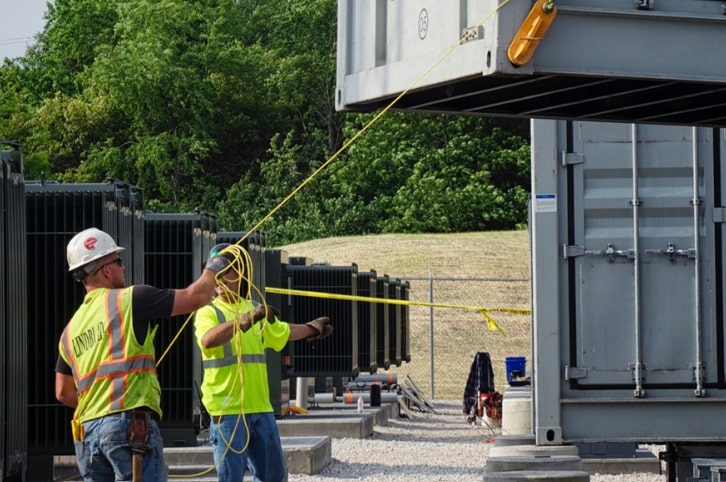
Vertically integrated energy storage company Kore Power will replace the batteries in a battery energy storage system (BESS) originally turned online with BYD batteries in 2015.
Kore, which is building a lithium-ion gigafactory and recently became a BESS integrator too, announced the deal with project owner Cordelio Power earlier this month.
Kore Power will ‘repower’ Cordelio’s 20 MW/44MWh McHenry standalone energy storage facility in the grid territory operated by PJM Interconnection, one of the US’ independent system operators (ISOs). Repowering means replacing the battery system entirely, and Kore will provide its deep-rack battery systems which will “increase the power, safety and flexibility of the facility”.
“The need to stabilise the grid and integrate renewable energy sources is set to grow rapidly in PJM, and we will need the most advanced energy storage technology available,” said Dan Foley, innovation leader at Cordelio Power.
The announcement did not give the location or even the state of the McHenry facility, only saying it was within the service territory of PJM, which covers all or part of through all or parts of 12 states including Illinois.
It is identical in name, size and ISO territory to one of the longest-operating BESS projects of its size in the world. The McHenry storage facility, in McHenry County, Illinois, was originally developed by GlidePath Power which then sold it a few months before construction started, to EDF Renewables in the first quarter of 2015.
The McHenry project then came online on 20 December, 2015, built using batteries and power electronics from BYD, one of the largest lithium-ion battery manufacturers globally today.
A re-post of Kore Power’s LinkedIn announcement by David Braun, who spent two years at Glidepath from 2018-2020, appeared to confirm it is the same project: “Congratulations to Dan Foley and his BESS development team at Cordelio on the repower of one of the early independent utility scale battery installations in PJM”.
A spokesperson for Kore Power confirmed the McHenry project is owned by Cordelio Power. Energy-Storage.news asked spokespersons for both Cordelio Power and EDF to clarify when the project changed hands between it and EDF Renewables, which still lists it on its website (while Cordelio does not) but has yet to receive a response.
Some outlets have misreported McHenry’s location as Waterbury, Vermont. In fact, that is where Kore Power has a facility where it will manufacture the BESS solution for the McHenry project. Vermont is part of the service territory of ISO New England (ISO-NE), not PJM.
We also asked the spokespersons whether the batteries at McHenry are the same BYD ones originally installed and why the decision was taken to repower them entirely.
The McHenry project went online in 2015 during a boom in PJM frequency response markets. However, frequency response should not degrade batteries fast as it is not a deep cycle application like energy trading or proving capacity to an offtaker under a power purchase agreement (PPA).
However, in 2017 changes were made by PJM to its frequency regulation markets which were inconsistent with participating storage resources’ original design and operational parameter, “significantly impacting” them, the trade body for the energy storage sector said at the time.
Because lithium-ion batteries degrade as they are cycled over time, developers will increasingly need to make decisions about augmentation as their projects age. Augmentation means adding additional new batteries to make up for lost capacity.
McHenry is the second project of a similar size that Kore has announced through its system integrator arm in quick succession. Last month, it revealed it would deploy a 41MWh system at a rice processing facility in Arkansas.